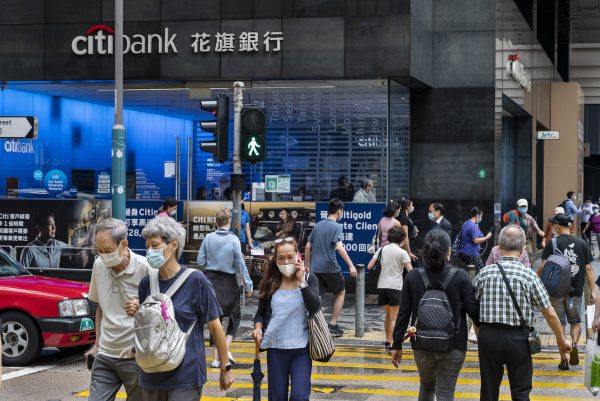Although some companies have exited and others relocated their Hong Kong employees in response to the law, many big names in banking and finance plan to boost their presence in the city. Goldman Sachs, Morgan Stanley, Bank of America, Citigroup and Credit Suisse plan to substantially expand hiring in Hong Kong. The past months have also seen more than one hundred new companies set up by investment managers.
Increased scrutiny by both the Chinese and US governments of Chinese firms listed on US stock exchanges may also push more Chinese firms to list or dual list on the Hong Kong Stock Exchange, further elevating the city’s financial hub status. In 2020, US$51 billion was raised through initial public offerings on the Hong Kong stock market. For now, it appears that Beijing’s move to bring Hong Kong into its tighter embrace has not inflicted significant damage to the city’s attractiveness as a financial hub.
In June 2021, Hong Kong’s Chief Executive Carrie Lam said the city’s strategy to enhance its global financial hub status is to seek further integration with mainland China. Even as closer ties between the city and the mainland have been vaunted by the Hong Kong government and Beijing, both are aware of the perceived drawbacks to the international business community. These include concerns over the erosion of Hong Kong’s autonomy in legal, financial and regulatory decisions.
Some new measures seem targeted to assuage such concerns. A pilot measure implemented in the Qianhai–Shenzhen industrial zone allows companies to use Hong Kong laws when entering into civil and commercial contracts. This initiative may be extended beyond Shenzhen.
Carrots have also been dangled to lure investment and businesses. In the pipeline are proposals to allow companies to conceal sensitive ownership data and to remove taxes on the investment incomes of private-equity investors and hedge funds. China’s Wealth Management Connect program allows mainland residents in the Guangdong–Hong Kong–Macau Greater Bay Area to invest in Hong Kong-based hedge funds and investment firms.
If closer enmeshment with mainland China has not unnerved Hong Kong-based foreign businesses, intensifying US–China rivalry may pressure companies to rethink their operations in Hong Kong.
The Biden administration issued an advisory to warn companies of the growing risks of operating in Hong Kong, including data privacy risks. Included in the advisory was a note on the tit-for-tat anti-foreign sanctions law, which allows Beijing to sanction those who enable foreign penalties to be implemented against Chinese groups and officials. It also updated another advisory reminding US companies about legal risks should they engage in business with Chinese entities in Xinjiang.
A recent survey of the American Chamber of Commerce’s members in Hong Kong shows that 42 per cent of respondents — citing China’s new security law and pessimism over Hong Kong’s future — have considered leaving the city.
If deteriorating US–China relations and unease over Beijing’s tightening stranglehold on the city induce more international companies and expatriates to leave, the Hong Kong economy might be left with only a handful of industries still of use to China, primarily banking and finance.
The financial services sector, one of Hong Kong’s economic pillars, contributes around 20 per cent of the city’s GDP. Hong Kong is still China’s gateway to the international financial system for Chinese companies to raise money globally and for rich Chinese to move their money overseas. The city has also long been a safe haven for the families of the party elite to park their money. For these reasons, it has been surmised in the New York Times that Beijing ‘can’t easily afford to scare away Hong Kong’s bankers and financiers’.
According to Fitch, erosion of the former British colony’s high degree of autonomy over its fiscal framework, its independently managed currency and financial regulation is unlikely at present. Yet China’s political leadership will not always prioritise the economy over politics. Commanding politics has always been the CCP’s top priority. As seen from how swiftly and resolutely it reined in Chinese tech giants and passed the national security law, when push comes to shove, the CCP will put politics over economics, even if it means short-term economic pain.
Still, it is unclear what it would take for Beijing to sink the Hong Kong financial ship. Until Beijing no longer needs Hong Kong, bankers and financiers, eager to capitalise on closer China–Hong Kong economic ties, will continue to double down on the city.
Yew Chiew Ping is Associate Professor and Head of Contemporary China Studies in the School of Humanities and Behavioural Sciences at the Singapore University of Social Sciences.

